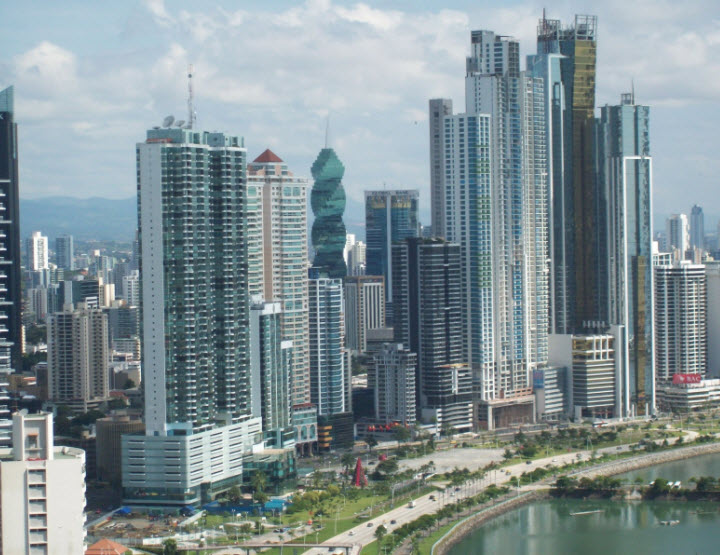Panama has been placed back on an international money laundering watchlist by the Financial Action Task Force (FATF), the Central American country’s economy minister announced Friday.
“Despite recognizing the progress made by Panama and its political commitment at the highest level, the FATF plenary held this week approved that Panama be included” on the list, said the minister, Eyda Varela.
Panama business chamber slams FAFT’s grey-list decision
Panamanian business chamber CCIAP slammed the Financial Action Task Force (FATF) for putting the country back on its so-called grey list.
The list identifies jurisdictions deemed to lack sufficient anti-money laundering and counter-terrorist financing (AML/CTF) rules. Panama will now be subject to FATF monitoring.
Working closely with the OECD, FATF sets standards and promotes implementation of legal, regulatory and operational measures for combating money laundering, terrorist financing and other related threats to the global financial system.
Panama, which has been working to beef up its regulatory framework and shed its image as a money-laundering hotspot, was previously on the list from 2014-16. The Central American nation was added to the list following an IMF evaluation in 2012 that found shortcomings in anti-money laundering practices. It was taken off the list in 2016 after making “significant progress” in improving its AML/CFT regime.
Inclusion on the list can generate negative fallout for an economy, particularly its financial services sector, via the likes of canceled correspondent banking arrangements.
“The chamber of commerce, industry and agriculture of Panama (CCIAP) rejects the unfortunate decision to include the country on the list of nations that need to be supervised in the process of implementing measures to prevent the laundering of capital and the financing of terrorism issued by FATF,” CCIAP said in a statement.
“The private and government sectors have been working hard to strengthen the legal, regulatory and institutional framework via the adoption of rules that are in line with international standards, and inclusion on this list does not acknowledge all the effort made and results achieved in a relatively short period of time.”
Panama, among others, is also on the European Commission’s list of jurisdictions with weak AML/CFT regimes.
In a statement outlining its Panama decision, FATF said: “FATF has identified Panama as a jurisdiction with strategic AML/CFT deficiencies. The country has developed an action plan with the FATF to address the most serious deficiencies. The FATF welcomed the high-level political commitment of Panama to this action plan.”
Panama’s finance ministry said the government was committed to continue implementing the plan.
The ministry, in a statement, outlined achievements in the area. Among them was making the country’s regulatory framework 87% compliant with international standards, up from 8% in 2014, and boosting supervision of both financial and non-financial sector entities.
In terms of action areas authorities will focus on, those that cover risk evaluation, identification of unlicensed money remitters, beneficial ownership, nominal directors, offshore, international cooperation and investigation.
This year Panama’s legislative assembly approved a bill that makes tax evasion, above certain levels, a criminal offence.
“Panama, both the public and private sectors, must maintain its commitment to strengthening its regime of capital laundering and terrorism financing prevention, in order to obtain the requisite evidence of effectiveness,” the finance ministry said. “We urge the new administration to continue with the work that is necessary to complete this process satisfactorily.”
On July 1, president-elect Laurentino Cortizo of the center-left Revolucionario Democrático party is due to take the reins from incumbent Juan Carlos Varela of the conservative Panameñista party.
In the region, the Bahamas and Trinidad & Tobago have also made commitments to strengthen their AML/CFT regimes. They are also subject to FAFT monitoring.
